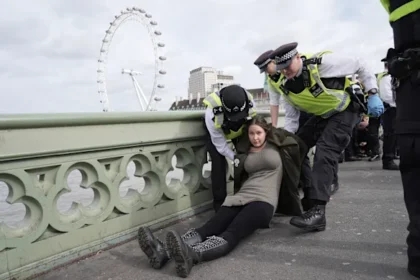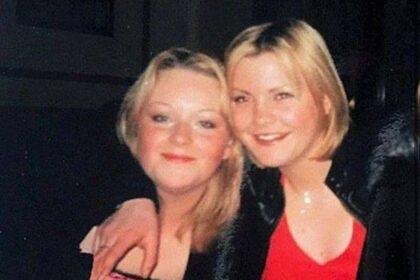Israelis Gather in Hostages Square to Reflect on Two Years Since October 7 Attacks
In a poignant gathering at Hostages Square in Tel Aviv, Israelis marked the second anniversary of the October 7 attacks, a day that ignited a protracted conflict in Gaza. The square, named shortly after the tragic events, has become a focal point for mourning and remembrance, drawing attention to the ongoing plight of hostages and the broader implications of the violence that has ensued.
A Somber Atmosphere
On this particular day, the usually vibrant square was enveloped in a somber silence, a stark contrast to its typical bustling atmosphere. The gathering coincided with a Jewish holiday, resulting in fewer attendees, yet the emotional weight of the occasion was palpable. An elderly man played soft melodies on a piano, his music drifting over a sea of flags and photographs commemorating both the deceased and the kidnapped. The overarching message echoed throughout the square: “Bring them home.”
Hostages Square has evolved into a significant site for Israelis, serving as a place for collective grief and hope. It stands as a reminder of the human cost of conflict, with many families still grappling with the uncertainty surrounding their loved ones.
The Legacy of October 7
The October 7 attacks in 2023 marked a turning point in Israeli-Palestinian relations, leading to a cycle of violence that has persisted for two years. The initial shock and anger felt by many Israelis were palpable in the weeks following the attacks, as calls for revenge echoed throughout the nation. However, as time has passed, a shift in sentiment has begun to emerge among some individuals, reflecting a desire for reconciliation rather than retribution.
One couple, who chose to remain anonymous, shared their reflections on the evolving feelings towards Palestinians. The man recounted how a relative narrowly escaped the violence at the Nova Festival, where many young party-goers were killed or taken hostage. “We are constantly grateful he survived,” he said, emphasizing the importance of reflection in such a space.
A Call for Peace
When asked about their thoughts on Palestinians, the couple expressed a transformation in their perspective. Initially filled with anger, they now advocate for peace and an end to suffering on both sides. “It is a process,” the woman noted, “and we want them not to suffer and for the war to end.” This sentiment underscores a growing recognition that the conflict’s resolution requires empathy and understanding, rather than further violence.
Hostages Square has become a symbol of this evolving dialogue. It features art displays, kiosks selling merchandise emblazoned with the “Bring Them Home Now” slogan, and tents for discussions and speeches. Survivors from the kibbutzim attacked during the October 7 events are present, sharing their stories and fostering connections with visitors.
The Role of Memorials
The square is adorned with posters of those kidnapped, and an electronic screen counts the days since the attacks, serving as a constant reminder of the ongoing crisis. A specially laid table symbolizes the empty chairs left by the kidnapped, representing the void in families across Israel. This memorialization is not merely about grief; it is also about resilience and the hope for a future where such tragedies do not recur.
As the region awaits negotiations between Hamas and Israeli officials, the atmosphere in Hostages Square reflects a complex interplay of sorrow, hope, and a yearning for peace. The couple in attendance expressed their hopes for U.S. involvement, particularly looking towards President Donald Trump. “If peace comes from his ambition to win some sort of prize and gain recognition, then so be it,” the man remarked. “The killing and suffering has to stop.”
Conclusion
The gathering at Hostages Square serves as a microcosm of the broader Israeli experience in the wake of the October 7 attacks. It highlights the duality of grief and hope, as individuals navigate their emotions in a landscape marked by loss and the desire for reconciliation. As the conflict continues, the voices emerging from this square may represent a crucial step towards understanding and healing in a region long plagued by violence. The journey towards peace is fraught with challenges, but the collective yearning for a better future remains a powerful force in the hearts of many.











